#Russ Feingold
Text
Steve Bannon, the former chief strategist in the Trump White House who is at the forefront of the Republican march toward hard-right populism, is throwing his weight behind a movement to radically rewrite the US Constitution.
Bannon has devoted recent episodes of his online show the War Room to a well-funded operation which has stealthily gained ground over the past two years. Backed by billionaire donors and corporate interests, it aims to persuade state legislatures to call a constitutional convention in the hope of baking far-right conservative values into the supreme law of the land.
The goal is, in essence, to turn the country into a permanent conservative nation irrespective of the will of the American people. The convention would promote policies that would limit the size and scope of the federal government, set ceilings on or even abolish taxes, free corporations from regulations, and impose restrictions on government action in areas such as abortion, guns and immigration.
“This is another line of attack strategically,” Bannon told his viewers last month. “You now have a political movement that understands we need to go after the administrative state.”
By “administrative state”, Bannon was referring to the involvement of the federal government and Congress in central aspects of modern American life. That includes combating the climate crisis, setting educational standards and fighting health inequities.
Mark Meckler, a founder of the Tea Party who now leads one of the largest groups advocating for the tactic, the Convention of States Action (COSA), spelled out some of the prime objectives on Bannon’s show. “We need to say constitutionally, ‘No, the federal government cannot be involved in education, or healthcare, or energy, or the environment’,” he said.
Meckler went on to divulge the anti-democratic nature of the state convention movement when he said a main aim was to prevent progressive policies being advanced through presidential elections. “The problem is, any time the administration swings back to Democrat – or radical progressive, or Marxist which is what they are – we are going to lose the gains. So you do the structural fix.”
The “structural fix” involves Republican state legislatures pushing conservative amendments to America’s foundational document. By cementing the policies into the US Constitution, they would become largely immune to electoral challenge.
Were a convention achieved, it would mark the zenith of conservative state power in American politics. Over the past 12 years, since the eruption of the Tea Party, Republicans have extended their grip to more than half of the states in the country, imposing an increasingly far-right agenda on the heartlands.
Now the plan is to take that dominance nationwide.
Article V of the Constitution lays out two distinct ways in which America’s core document, ratified in 1788, can be revised. In practice, all 27 amendments that have been added over the past 244 years have come through the first route – a Congress-led process whereby two-thirds of both the US House and Senate have to approve changes followed by ratification by three-quarters of the states.
Meckler, working alongside other powerful interest groups and wealthy rightwing megadonors, is gunning for Article V’s second route – one that has never been tried before. It gives state legislatures the power to call a constitutional convention of their own, should two-thirds of all 50 states agree.
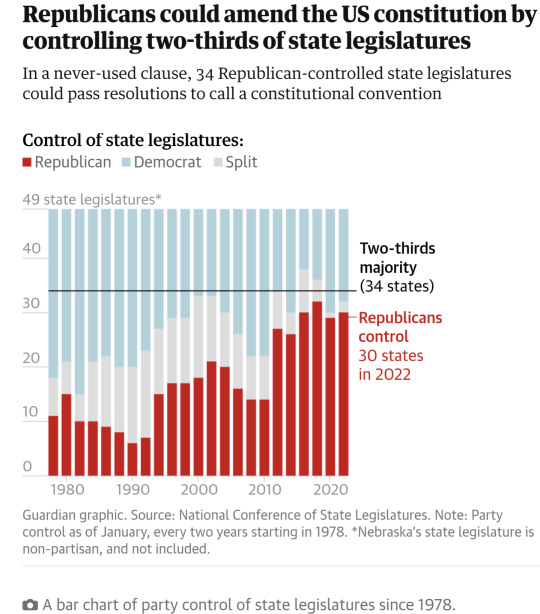
The state-based model for rewriting the US Constitution is perhaps the most audacious attempt yet by hard-right Republicans to secure what amounts to conservative minority rule in which a minority of lawmakers representing less-populated rural states dictate terms to the majority of Americans. Russ Feingold, a former Democratic US senator from Wisconsin, told The Guardian that “they want to rewrite the constitution in a fundamental way that is not just conservative, it is minoritarian. It will prevent the will of ‘we the people’ being heard.”
Feingold has co-authored with Peter Prindiville of the Stanford constitutional law center The Constitution in Jeopardy, a new book that sounds the alarm on the states-based convention movement. “Our goal is not to scare people, but to alert them that there is a movement on the far right that is quietly getting itself to a point where it will be almost impossible to stop a convention being called,” he said.
His urgency is underlined by how active the movement has become. A convention resolution framed by COSA has passed so far this year in four states – Wisconsin, Nebraska, West Virginia and South Carolina.
The group has also been busy around November’s midterm elections, using its muscle and some $600,000 (£528,252) of its reserves to support candidates amenable to the idea. “We have built the largest grassroots activist army in American history,” Meckler told Bannon, probably hyperbolically.
Bannon’s other guest on the War Room, Rick Santorum, a former Republican US senator from Pennsylvania who advises COSA, told Bannon: “This is something that can happen very quickly. We are a lot further along than people think.”
They are also much better funded than people might think. The Center for Media and Democracy (CMD), which monitors the constitutional convention movement, estimates that it pulled in $25M (£22M) in 2020, the last year for which figures are known.
The funds were split between COSA and other influential groups on the right. They include the American Legislative Exchange Council (ALEC), a network of state politicians and corporate lobbyists which has taken up the cry for a constitutional amendment to force balanced budget restrictions on Washington.
Much of the income is dark money, with the origins hidden. CMD has managed to identify some key donors – among them the Mercer Family Foundation set up by reclusive hedge fund manager Robert Mercer, and a couple of groups run by Leonard Leo, the mastermind behind the rightwing land grab in the federal courts.
More than $1m (£880,265) has also been donated in the form of Bitcoin.
The attraction to these groups and donors of pursuing a states route to rewriting the US Constitution is easily explained. Over the past 12 years, since the eruption of the Tea Party in 2010, Republican activists have deployed extreme partisan gerrymandering to pull off an extraordinary takeover of state legislatures.
In 2010, Republicans controlled both chambers of just 14 state legislatures. Today, that number stands at 31.
“Republicans are near the high watermark in terms of their political control in the states, and that’s why the pro-Trump rightwing of the party is increasingly embracing the constitutional convention strategy,” said Arn Pearson, CMD’s executive director.
Should a convention be achieved, the plan would be to give states one vote each. There is no legal or historical basis for such an arrangement but its appeal is self-evident.
One vote per state would give small rural conservative states like Wyoming (population 580,000) equal leverage to large urbanized progressive states like California (39.5 million). Collectively, small states would be in the majority and control would tip to the Republicans.
Last December Santorum spelled out this minoritarian vision at a private ALEC meeting. In an audio recording obtained by CMD, Santorum said: “We have the opportunity, as a result, to have a supermajority, even though we may not even be in an absolute majority when it comes to the people who agree with us.”
Pearson decried such thinking as “a profoundly anti-majoritarian and anti-democratic strategy that gives small rural states most control”.
With the counting system skewed towards the conservative heartlands, the list of amendments that might be pursued is disconcertingly large. Though Meckler and his allies largely avoid talking about culture war issues, it is quite conceivable that a nationwide ban on abortion and a rescinding of gay marriage would be on the table.
More openly, advocates have talked about imposing balanced budget requirements on the US government that would dramatically shrink federal resources. Some have even proposed making income tax unconstitutional.
One of the more popular ideas circulating within rightwing constitutional convention circles, initially floated by the talk show host Mark Levin, is that states should grant themselves the ability to override federal statutes and supreme court rulings. It is hard to see how the federal rule of law could be sustained under such an arrangement with its unmistakable civil war undertones.
Under Article V, 34 states would have to call for a constitutional convention to reach the two-thirds requirement. COSA has so far succeeded in getting 19 states to sign up, with a further six in active consideration.
ALEC, which sets a narrower remit for a convention focused on its balanced budget amendment, has gone further with 28 states on board.
Either way, there is a shortfall. To address it, constitutional convention leaders have invented increasingly exotic mathematical formulas for attaining the magic number, 34. “We used to call it fuzzy math, now we call it wacky math,” Pearson said.
Advocates filed a lawsuit in Texas in February that tried to get the courts to force a constitutional convention on grounds that they had reached 34 states already – they cobbled together unrelated state convention calls, including some dating back to the 1800s. In July two bills were also introduced to the US House requiring Congress to call a convention immediately.
David Super, a law professor at Georgetown University, said the willingness to adopt outlandish logic should sound further alarm bells. It raised the stakes even higher for the November elections.
“The midterms are crucial,” Super said. “Changes at state-level matter, but will not get them to 34 states. If they can take control of Congress, they could bridge the gap.”
Paradoxically, what happens to Congress in the midterms could have the biggest impact on the future prospects of a states-based constitutional convention. Should the Republicans take back control of the US House and Senate they would be in a position to advance radical Republicans’ demands.
“We’ve already seen a willingness to play fast and loose with the math on all sorts of things in Congress,” Super said. “I would not be surprised if they were to make a serious attempt to adopt one of these bizarre accounting theories should they take control of both chambers in November.”
That could mean a rapid dash for a convention before most Americans would have woken up to the danger.
“If the Republicans prevail in Congress, they could try to call a convention right away,” Feingold said. “People should know that when they go to vote in November – this could fundamentally undermine their rights in a way that is both disturbing and permanent.”
#us politics#news#the guardian#2022#constitutional convention#steve bannon#war room podcast#alt right#gop#republicans#conservatives#Mark Meckler#tea party#Convention of States Action#us constitution#article v#Russ Feingold#Rick Santorum#Center for Media and Democracy#American Legislative Exchange Council#Robert Mercer#Leonard Leo#gerrymandering#mark levin#david super
60 notes
·
View notes
Text
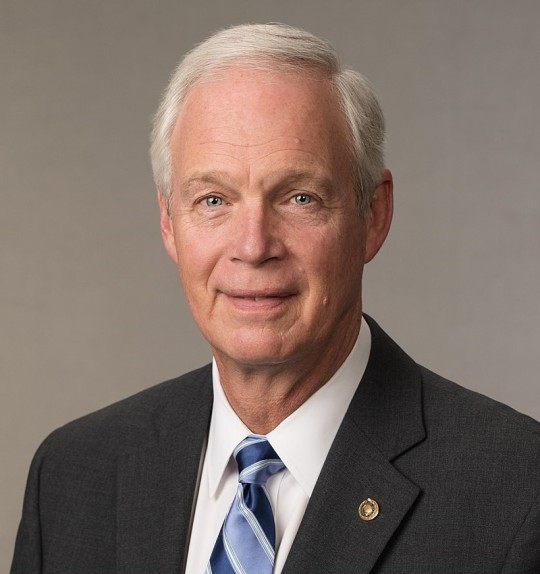
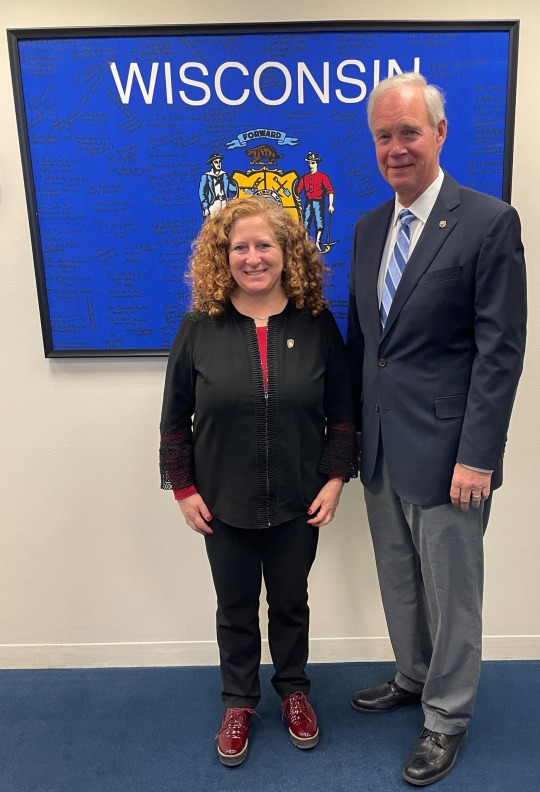
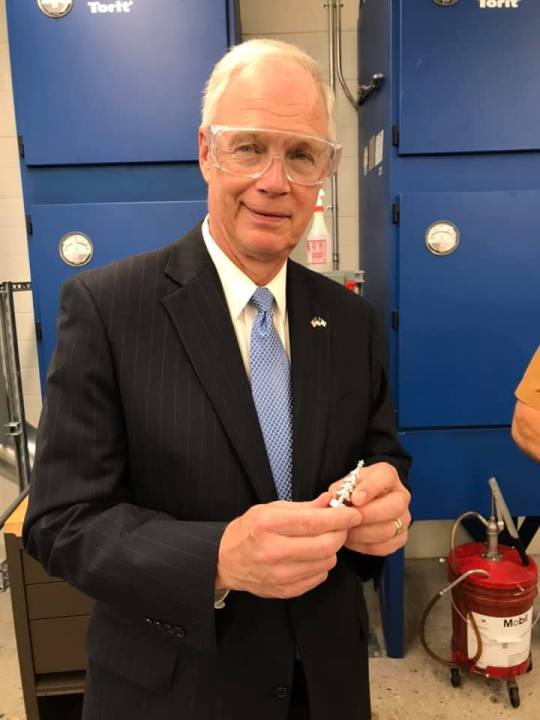
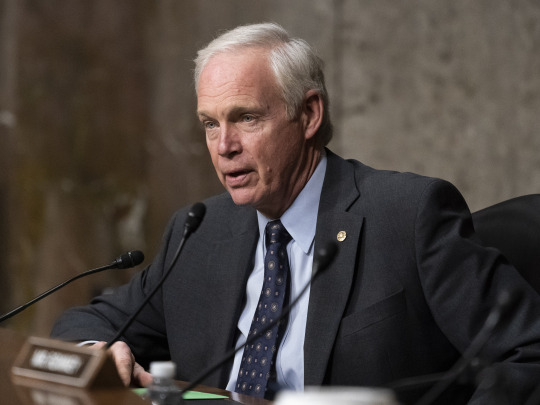
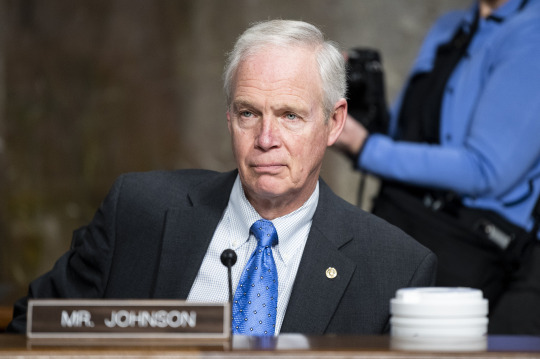
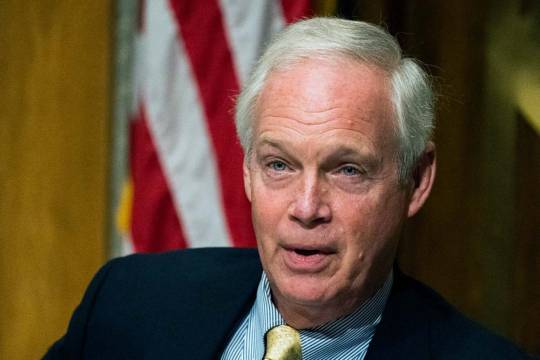
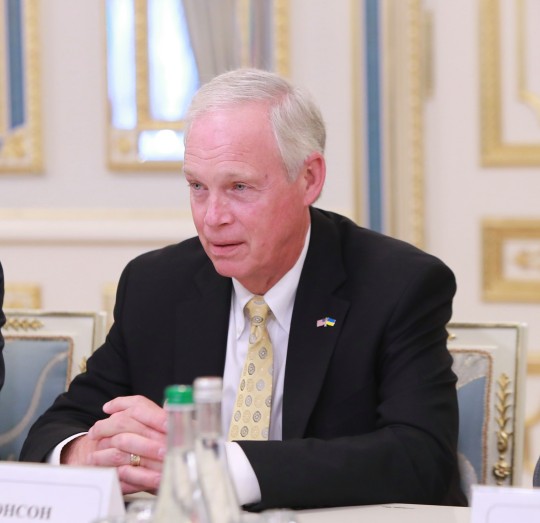

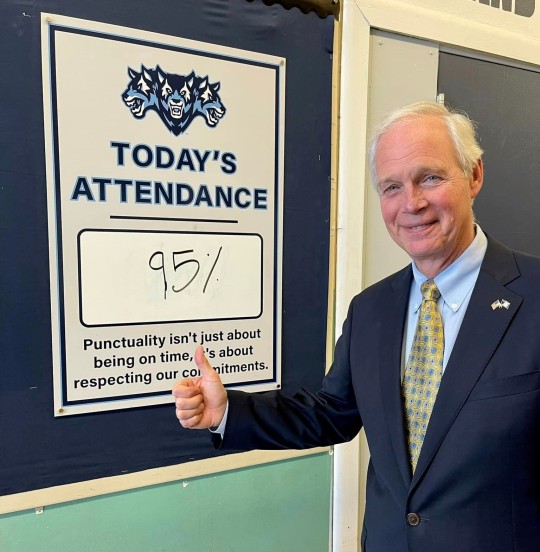
Ron Johnson
Born: April 8, 1955, Mankato, MN
Physique: Average Build
Ronald Harold Johnson is an American politician serving as the senior United States senator from Wisconsin, a seat he has held since 2011. A Republican, Johnson was first elected to the U.S. Senate in 2010, defeating Democratic incumbent Russ Feingold.
Married with three children, Johnson has been a senator since 2011 and I just now noticing him. He stands for… policy things and he has a very strong stance on… stuff. Since I don't live in his state, I don't really care. He has beautiful head of white hair and has a great dick sucking lips… for me to run my dick across.
19 notes
·
View notes
Text
Birthdays 3.2
Beer Birthdays
William Bass (1717)
David G. Yuengling (1808)
Joseph Conrad (1825)
John Welde (1839)
Carl Jacobsen (1842)
Henry Gund (1859)
Five Favorite Birthdays
George Benson; jazz guitarist (1943)
Daniel Craig; actor (1968)
Dr. Seuss, a.k.a. Theodore Geisel; writer (1904)
John Irving; writer (1942)
Bedrich Smetana; Czech composer (1824)
Famous Birthdays
Desi Arnaz; actor, singer, bandleader (1917)
Jon Bon Jovi; rock singer, actor (1962)
Dale Bozzio; rock musician (1955)
Larry Carlton; guitarist (1948)
Karen Carpenter; pop singer (1950)
John Jay Chapman; writer (1862)
DeWitt Clinton; politician (1769)
John Cowsill; pop singer (1956)
Eddie "Lockjaw" Davis; jazz saxophonist (1922)
Mark Evans; rock bassist (1956)
Russ Feingold; politician (1953)
Rory Gallagher; rock guitarist (1948)
Mikhail Gorbachev; Russian politician (1931)
Sam Houston; politician (1793)
Bryce Dallas Howard; actor (1981)
Jennifer Jones; actor (1919)
Megan Leigh; porn actor (1964)
Gates McFadden; actor (1949)
Eddie Money; rock musician (1949)
Laraine Newman; comedian, actor (1952)
Mel Ott; New York Giants RF (1909)
Lou Reed; singer (1944)
Martin Ritt; film director (1914)
Amber Smith; model, actor (1971)
Peter Straub; writer (1943)
Doug Watkins; jazz bassist (1934)
Doc Watson; country guitarist (1923)
Kurt Weill; composter, songwriter (1900)
Tom Wolfe; writer (1931)
1 note
·
View note
Text
Welcome to the SADS Foundation.
Established on December 12, 1991 by Dr. Michael Vincent, The SADS Foundation is a community of families, medical professionals, and supporters saving lives and advancing care for people with heart arrhythmia conditions that can lead to sudden death.
1 note
·
View note
Text
Republicans have campaigned behind the scenes for years now to change the Constitution through a gathering of 34 state legislatures known as a constitutional convention.
A constitutional convention, designated by Article V of the Constitution, would allow state legislatures to pass or ratify constitutional amendments without a governor's signature, Congress' intervention, or any input from the President.
Some Republicans attempt to use a convention, which has never been accomplished in U.S. history, to limit the federal governments spending and taxation powers and enact term limits on more federal officials.
Former Democratic Senator Russ Feingold and constitutional scholar Peter Prindiville write in their new book "The Constitution in Jeopardy" that a "runaway" convention has the potential to go off-script and create massive changes in how the federal government regulates laws concerning health care, education, and the environment.
Prindiville told the Times that the convention would operate as a "free-standing, distinct constitutional body" without clear guidance on how it would function because the rules of a constitutional convention were never detailed by the framers.
"Despite convention proponents' claims of legal certainty, the most important questions about how a convening held under Article V would be called and how it would function are unsettled," Feingold and Prindiville write in their book, according to the Times.
"The framers left no rules. In this uncertainty lies great danger and, possibly, great power."
Insider's Grace Panetta and Brent D. Griffiths previously reported on the Republican plan to assemble a constitutional convention to gut environmental regulations and education standards while making it more difficult for Washington, DC or territories like Puerto Rico to earn statehood.
Rob Natelson, a key Article V scholar in the movement to call a convention, previously dismissed the potential of a "runaway" convention to Insider.
The Convention of the States, which has ties to prominent Republicans like former Trump lawyer John Eastman, has pushed for narrow revisions of the Constitution that would limit "the power and jurisdiction" of the federal government.
David Super, a professor and Constitutional law expert at Georgetown University Law Center, told Insider that limiting the power of the federal government could actually result in extreme and broad changes.
"I defy you to name a Constitutional amendment that you might want that I couldn't characterize as one of the three things in the Convention of States," Super told Panetta and Griffiths. "You want to repeal the 14th Amendment Equal Protection Clause? That's limiting the power of the federal government to interfere with state laws. Almost anything you want, you can characterize as one of those things."
Nineteen states have so far passed a Convention of States' resolution — with five states making progress on the resolution — according to an Insider analysis. Three states — South Dakota, Iowa, and North Carolina — have Republican-led state legislatures.
Backers of a constitutional convention include Eastman, Florida Gov. Ron DeSantis, and Fox News personalities like Sean Hannity and Mark Levin.
Natelson previously told Insider that he predicts there is a 50% chance the country will be able to form one within the next five years.
#us politics#news#republicans#conservatives#2022#gop#republican platform#constitutional convention#article v#us constitution#Russ Feingold#Peter Prindiville#The Constitution in Jeopardy#Grace Panetta#Brent D. Griffiths#Rob Natelson#Convention of the States#john eastman#gov. ron desantis#sean hannity#mark levin#David Super
17 notes
·
View notes
Link
Former Senator Russ Feingold was on The Beat with Ari Melber. They talked about today’s WORLDWIDE protests for action on the Climate Crisis. Feingold is an Ambassador for a new group, Campaign for Nature. Read more about this group at the link above.
3 notes
·
View notes
Text
Birthdays 3.2
Beer Birthdays
William Bass (1717)
David G. Yuengling (1808)
Joseph Conrad (1825)
John Welde (1839)
Carl Jacobsen (1842)
Henry Gund (1859)
Five Favorite Birthdays
George Benson; jazz guitarist (1943)
Daniel Craig; actor (1968)
Dr. Seuss, a.k.a. Theodore Geisel; writer (1904)
John Irving; writer (1942)
Bedrich Smetana; Czech composer (1824)
Famous Birthdays
Desi Arnaz; actor, singer, bandleader (1917)
Jon Bon Jovi; rock singer, actor (1962)
Dale Bozzio; rock musician (1955)
Larry Carlton; guitarist (1948)
Karen Carpenter; pop singer (1950)
John Jay Chapman; writer (1862)
DeWitt Clinton; politician (1769)
John Cowsill; pop singer (1956)
Eddie "Lockjaw" Davis; jazz saxophonist (1922)
Mark Evans; rock bassist (1956)
Russ Feingold; politician (1953)
Rory Gallagher; rock guitarist (1948)
Mikhail Gorbachev; Russian politician (1931)
Sam Houston; politician (1793)
Bryce Dallas Howard; actor (1981)
Jennifer Jones; actor (1919)
Megan Leigh; porn actor (1964)
Gates McFadden; actor (1949)
Eddie Money; rock musician (1949)
Laraine Newman; comedian, actor (1952)
Mel Ott; New York Giants RF (1909)
Lou Reed; singer (1944)
Martin Ritt; film director (1914)
Amber Smith; model, actor (1971)
Peter Straub; writer (1943)
Doug Watkins; jazz bassist (1934)
Doc Watson; country guitarist (1923)
Kurt Weill; composter, songwriter (1900)
Tom Wolfe; writer (1931)
0 notes
Link
11 notes
·
View notes
Link
Have something you want to tell Manchin and Sinima? If you can't safely protest in person, here are some other options:
Call the Capitol Switchboard at (202) 224-3121 and ask to be connected to the representative of your choice.
This App phones your rep for you: http://takeastance.us/
Here is one that will send your reps a fax: https://resistbot.io/
0 notes
Quote
Judge Gorsuch himself should understand the precedent his nomination risks setting and not hide behind statements about the need to avoid politics. He should have refused the nomination. He reportedly called Judge Garland after he was nominated. If he had truly understood what is at stake, he would have called Judge Garland to say he had turned down the nomination in solidarity — not with Judge Garland personally, but with the Supreme Court and the U.S. Constitution that he says he holds in such high regard.
But he didn’t.
Russ Feingold, Gorsuch nomination a once-in-a-generation test to stop GOP control | TheHill
5 notes
·
View notes
Note
honestly i wish that hillary was guilty of 10% of the shit her haters accuse her of. we’d have gotten rid of so many shitty people by now.
Lee Carter once accused Hillary of causing a famine in Haiti like nobody thinks Hillary Clinton is more powerful than people that hate her lol.
Logically speaking though, do you really think that if she'd actually done the insanely horrible things people claim she did that she wouldn't have been prosecuted for them??? She was thoroughly investigated by a Republican Congress and testified for hours on end because of 4 deaths in Benghazi, but the only reason she even had to testify in the first place was because she was Hillary Clinton.
Her 2016 loss was also definitely a death by a thousand cuts situation. She was 77,000 votes across MI, WI, and PA from the presidency, which means that if there was no Benghazi, no Comey or no Bernie (she won the primary by 3.8 million votes like it wasn't close at all so people need to stop pretending it was), she probably would have beaten Trump, but because all three of those loomed so heavily on her campaign in the very last months leading up to the election, she barely lost. And, even with all that and 30 years of GOP propaganda against her, she still outran Katie McGinty in Pennsylvania and Russ Feingold in Wisconsin and Maggie Hassan in New Hampshire at the top of the ticket.
Trump won by more in 2016 than Biden did in 2020! That's the most depressing thing of all but like, that's also America for you.
17 notes
·
View notes
Text
"Sen. Ron Johnson (R-WI) is up for reelection in 2022 after spending the past several years covering [t]rump’s links to Russia. Now he’s saying he’s not sure yet if he’ll run again.
"Johnson was working with a Russian-linked lawmaker Andriy Derkach, from Ukraine, who was ultimately sanctioned by [t]rump’s Treasury Department after it was uncovered that he was an active Russian Agent. Derkach was the one who sent allegations about Hunter Biden to Johnson, Rudy Giulini and Rep. Devin Nunes (R-CA).
"At the end of October, polling showed that Johnson is already losing to former Sen. Russ Feingold. Those numbers come before any possible investigations into Russia’s long history with the [t]rump administration and any of Johnson’s possible involvement. If Democrats win in Georgia’s runoff and take over the U.S. Senate, it’s possible Johnson could come under an internal investigation.
"...Johnson is in 'a risky political gamble' by aligning himself so closely with [t]rump and with Russia, which was just found to have hacked three agencies [now at least five] of the U.S. government thus far."
13 notes
·
View notes
Text
At this point, Bernie is too old to run for a first term in 2024, so I figure with his campaign ending today we might as well start looking to the next election now. We move forward.
Potential 2024 progressive Presidential candidates:
Nina Turner
I just can't think of a better person more well set up to succeed Bernie than Nina, and this time they can't call her a racist that hates black people. Or at least they will but it won't land. She's got the cred and experience, she's shown she can fight, progressives like her, she's been with Bernie every step of the way. It just makes sense. She's also elevated her profile during this campaign, being more front and center.
If anyone can directly take the reigns of what Bernie built and reenergize the grassroots donor base, it's Nina Turner.
Pramila Jayapal
Not sure how well known she is outside progressive political circles, but I absolutely adore her. She's got just about everything you'd want from a progressive candidate. Early Bernie supporter and disavowing of corporate money, sponsor of M4A in the House, ticks most if not all policy boxes, was an advocate outside the state aparatus. She may not be a demsoc (not many self-avowed socialists unless AOC or Nina Turner runs), but I think she's got what it takes.
Ro Khanna
Has sort of supplanted Keith Ellison as Bernie's sort of more estsblished liaison in the House. Again, has deep ties to the last campaign, is well known and liked in among the base. It'll be very interesting to see what he does going forward. He's definitely taken on the M4A and anti-war mantles, let's see where that leads. I have him front of mind though.
Chuy Garcia
Long-time Bernie ally, and has connections to the Illinois machine which could potentially bring on Obama-wing people. A campaign that brings together Bernie-Obama is possibly unstoppable.
It would be cool, but probably not:
AOC: Just barely old enough to run (turns 35 in 2024), but I have a feeling she'll want to wait juuuust a little longer. Or she could capitalize on her star status, assuming her momentum hasn't been blunted. 2022 will answer a lot. 6 years in office is a short stay for a Presidential candidate
Rashida Tlaib: Same as AOC, with a slightly lower profile
Barbara Lee: probably the most underappreciated progressive of our time. She's falls into the Bernie/Biden trap of "too old" and we already know women and poc are held to a different standard on that
Keith Ellison: The domestic violence accusation basically takes him off the table.
Ilhan Omar: *sigh* Not eligible
Katie Hill: Now that would be a hell of a comeback.
Russ Feingold: Speaking of comebacks. Why not follow up a lefty Jewish Senator with another lefty Jewish Senator.
The Liz Warren "progressive" candidates:
Julian Castro: Julian I am begging you to please just run for Governor or Senator. Texas needs you more, especially when it comes to flipping our state level offices
Ayanna Pressley: She broke from the Squad in this last cycle, seems like she's in position to take Warren's Senate seat when it opens up (I can't imagine Warren stays in it past another term). Still one to watch
Katie Porter: If there's another Liz Warren out there, it's Katie Porter. Which isn't a bad thing in Congress, we need more people like that there, but there's more progressive options for President
105 notes
·
View notes
Text
Has there ever been a worse senate succession than Russ Feingold -> Ron Johnson?
2 notes
·
View notes